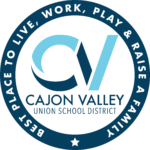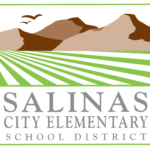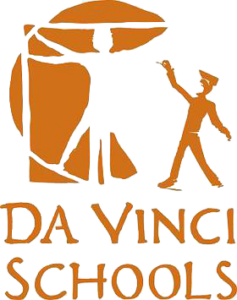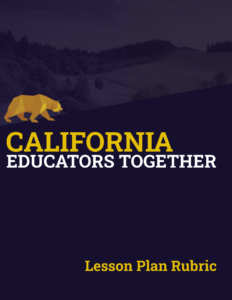News & Announcements
Request for Proposals
- Proposals Accepted Through: October 30, 2023 at 4:00pm PST
Open Door Sessions
CCEE, in collaboration with LEAs and partner organizations, is hosting “open door” sessions to share best practices, tools/resources, and strategies to support student learning. These sessions will provide opportunities for county office and/or district staff to listen and learn from other LEAs across the state, and connect further, if interested. Those who express interest in connecting further will be invited to join a smaller, more intimate “Special Interest Group” session, in which the presenting LEA will be available to listen, share, and help participants with more specific questions.
Register for upcoming Open Door sessions by clicking on the links below:
- Fresno CSS’s Tools for Navigating the Plan-demic (8/8/23)
- Graduate Profiles: Redefining Student Success (9/27/23)
To view archived materials from past Open Door sessions, please visit our Open Door Sessions Google Site. You can also check our Events Calendar or follow CCEE on Twitter and LinkedIn to stay up-to-date on upcoming Open Door sessions.
LEA Spotlights
The Spotlights Project aims to celebrate some of the innovative, inclusive, and shareable practices that LEA teams have implemented to improve outcomes for students across our state. Each Spotlight organizes the successes, challenges, and lessons learned in a way that calls attention to emerging practices, reproducible strategies, and applicable resources, in hopes of introducing accessible points of conversation for other LEAs looking to resolve similar issues.
Below are three recently published Spotlights. Click on the links below to learn more about the innovative practices taking place in these LEAs.

Cajon Valley USD embraced its multicultural and multiethnic district composition, leveraging its diversity to serve all community members and improve its community outreach and engagement with “families in need.”

Salinas City ESD uses data to drive collaboration, critical reflection, and action to improve attendance practices at all of their school sites.

Da Vinci Schools cultivates an inclusive learning environment that promotes real-world learning to prepare students for college, career, and life. However, it is their ability to gather and effectively use data that maximizes their impact on teaching and learning — ensuring students thrive as lifelong learners.
Project clear
Project CLEAR (California Literacy Elevation by Accelerating Reading) builds capacity in implementing and accelerating literacy development in districts across the state. Educators can participate in one of two levels of professional learning offered through Project CLEAR – Teacher Leaders and Teachers. Participation is fully funded through Project CLEAR! For more information, please visit Project CLEAR’s webpage on the Learning Acceleration System Grant website.
July Resources
Supporting Better Attendance Practices: The Evolving Role of COEs (5/31/23)
System of Support Updates (June/July 2023)
Microlearning Modules – CCEE has partnered with content experts and experienced educators to develop short videos sharing and explaining concepts, tools, and resources for a wide range of topics to support substitute teachers, paraeducators, and other instructional staff in the classroom. All microlearning modules are accompanied by easy-to-follow instructions, downloadable handouts, and additional resources to support immediate implementation. New videos are added periodically, covering various topics, tips, and strategies.
About the I3 Center
The Innovation, Instruction, and Impact (I3) Center implements a statewide approach to improving LEA capacity by collaboratively developing, delivering, sharing, and spotlighting practices that have demonstrated the power to improve outcomes for students.
About the CCEE
The California Collaborative for Educational Excellence is a statewide leader delivering on California’s promise of a quality, equitable education for every student.
Executive Director’s Corner
By Matt J. Navo, Executive Director

“Every road will get you there if you don’t know where you are going” is a quote I heard from a school leader talking about the absence of data in their instructional teams. So often, school teams avoid the use of data to avoid the harsh realities around student, school, or district performance.
We (educators) sometimes find it easier to play “poker” with data. Meaning, I show you my two aces, hoping you think I have a three- or four-of-a-kind when in reality I have nothing more. Playing poker with data is a sure-fire way to avoid the tough conversations and reality of our efforts. IF we (educators) are going to move our networking, collaboration, convenings, and gatherings of expertise to the next level, we have to show all our cards—no poker, just raw data.
This newsletter by the Innovation, Instruction, and Impact (I3) Center describes examples of networks using data to improve student outcomes and address ineffective practices.
What Do We Learn When We Learn Together?
By Sujie Shin, Deputy Executive Director

For any of you who have had the privilege of attending workshops with Peter Senge, you know that a core tenet of his philosophy of learning is that “[S]haring knowledge is not about giving people something or getting something from them…Sharing knowledge occurs when people are genuinely interested in helping one another develop new capacities for action; it is about creating learning processes.”
We know that to be a learning organization, it’s not enough just to acquire knowledge, but to share in that space with others, and find the opportunities to learn from each others’ successes and challenges. This is the philosophy behind our learning networks—creating safe spaces for local educational agency (LEA) teams to come together around similar problems of practice and share lessons learned as they try approaches to improving school and district systems to support student achievement.
One of our networks has been focused on academic outcomes for African American students, a group that has been disproportionately negatively affected by the pandemic and related challenges. Black students have experienced higher increases in chronic absenteeism and other measures of disengagement, and greater drops in English Language Arts (ELA) and math scores. Over the past year, this network of five LEA teams have each identified a key area of improvement to focus on for improving student outcomes. One team is testing the impact of regular check-ins with a school counselor on student attendance and course completion. Another is focusing on improving their implementation of their multi-tiered system of support (MTSS) to reduce the overidentification of Black students in special education in particular categories. Still another looked at the impact of personal learning plans to reduce the overrepresentation of African American male students receiving non-passing grades in core classes. The problems of practice are as diverse as the student bodies these LEAs support.
What is not varied is our approach in collecting data to examine change over time and progress towards our goals on a regular basis. This gets to another key principle of our work, which is, to again quote Dr. Senge, that “Learning cannot be disassociated from action.” And how we learn is to measure the progress from our action, through interim metrics such as attendance, test results, check-in data as well as direct input and feedback from the students and families we serve.
This framework of action research means that we can investigate problems of practice that LEAs are facing while supporting them in immediately addressing the issues they are facing.
Learn more about the work of our partner LEAs by clicking on the buttons below.
Lessons Learned from the Planning Phase of the Data Research Learning Network
By Ingrid Roberson, Assistant Director of Research Learning and Dorcas Kong, Senior Specialist of Executive Projects


In January 2023, the I3 Center launched the Data Research Learning Network (DRLN) as a three-phase initiative to support local educational agencies (LEAs) in transforming their data and assessment practices to accelerate student learning. As we close out the Planning Phase, CCEE is pleased to share the first DRLN Research Brief summarizing the lessons learned that came out of this learning community. The DRLN recently concluded the Planning Phase with the DRLN Showcase highlighting each LEA’s Action Plan for the 2023-24 school year. Over the past six months, DRLN participants conducted data dives to better define their problems of practice and develop their action plans, identifying goals and strategies that would move the needle on aligned progress measures. But what truly elevated their innovation ideas was the way they tapped into the wealth of collective knowledge and expertise within this learning network. LEAs were able to harness the power of collaboration in this shared learning space to exchange innovative ideas, explore different avenues of addressing their problems of practice, and ultimately, build their data capacity to support student outcomes.

In preparation for the Implementation Phase, CCEE will be hosting two summer workshops to guide DRLN participants in the progress monitoring and evaluating the impact of their Innovation Projects. The DRLN team decided to tailor these workshops to LEAs’ Action Plans, with a focus on designing effective surveys, collecting feedback/attendance data for trainings and professional development sessions, and measuring user statistics (e.g. website/dashboard analytics). By building the capacity of DRLN participants to develop and implement effective progress monitoring processes with tools, they will be prepared to embark on their Innovation journeys come August, with an understanding of how they will be engaging in continuous improvement cycles to enhance their data practices, programs, and systems.
Interested in learning more about each LEA’s innovation idea and action plan? Take a look at our DRLN Overview Handout or check out CCEE’s Learning Networks Google Site to explore the problems of practice identified by LEAs in not only the DRLN, but across all of I3’s learning networks. As our networks progress, the I3 Center will be updating the Google Site with measures of impact, as well as shareable resources that come out of our work. Aligned to I3’s goal of improving LEA capacity by collaboratively developing, delivering, sharing, and spotlighting research-based practices, we hope this Google Site can serve as a learning hub for California’s broader educational community.
Supporting Educators Through the Development of the California Educators Together Repository for High-Quality Online Instructional Materials
By Allan Taing, Senior Manager of Research & Impact Analysis

The CCEE, working with our partners at the California Department of Education (CDE) and the State Board of Education (SBE), are supporting Kern County Superintendent of Schools (KCSOS) as they serve as the project lead for the High Quality Online Instructional Materials project (HQOIM), as defined in Section 144 of AB 130 (Chapter 44, Statutes of 2021) and revised in Section 41 of AB 167 (Chapter 252, Statutes of 2021). This three-year $15 million dollar project is designed to enhance the educator professional learning infrastructure within the Statewide System of Support. The goals of this initiative are to develop and curate easy-to-use resources for local educational agencies (LEAs) and educators, establish a transparent process for vetting materials to ensure quality and alignment with state academic standards, and provide guidance and resources regarding the implementation and use of open educational resources.
During this first year of the project, KCSOS developed the California Educators Together High-Quality Lesson Design Rubric (CaET Rubric) to evaluate high quality materials and hosted two virtual Lesson Design Institutes in February and March, and one in-person Lesson Design Institute in May to train more than 100 educators to design rubric-aligned lesson plans. To further develop and promote the California Educators Together repository (CaET), KCSOS presented at 12 conferences and implemented a vetting collaborative to train evaluators to vet resources on the CaET repository using the CaET Rubric, resulting in 307 new rubric-aligned lessons, 304 new standards-based lessons, 779 new resources, and 2,938 existing lessons vetted. As a result of KCSOS efforts, the California Educators Together portal now has more than 25,000 users, including 6,832 new users over the past year. During the second year of the project, KCSOS will continue to offer virtual and in-person Lesson Design Institutes, continue efforts to disseminate high-quality rubric-aligned lessons and resources, and vet existing materials. KCSOS will also focus on potential partnerships to increase visibility of the CaET repository and new users.
WestEd is leading the external program evaluation of the HQOIM project. Key findings from the formative evaluation of the first year indicate that Kern County has built a team that is focused on educators, learns and adapts, listens to feedback, and is focused on key issues of sustainability, partnerships, and scaling up. Feedback from teachers attending the Lesson Design Institutes are overwhelmingly positive; in focus groups and interviews, educators are excited for the CaET Rubric and praised the quality of the institutes. In addition, the California Educators Together repository contains a wide variety of high-quality resources and capabilities, and the program team and educators are excited about the potential of new and different capabilities for this platform to further support effective teaching and learning.
To learn more about this evaluation, as well as evaluations for other statewide professional learning initiatives launched in 2021, please visit the CCEE Statewide Program Evaluation website.

